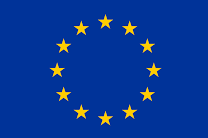SECTION 8
TRADE SCHEMES
While Timor-Leste is not part of any free trade agreements, there are still some trade schemes that your business may benefit from. A trade scheme is an arrangement between countries that will remove trade barriers such as tariffs and make trade cheaper.
Your business can benefit from the GSP. GSP helps you by making it easier for you to export your products to some of the major export markets. Your business will benefit from reduced tariffs for your goods when entering the markets. For example, with the GSP, an exporter that wants to export coffee to Australia will not need to pay additional fees such as taxes or import duties. This makes it cheaper for businesses to export their goods to Australia.
Step-by-Step Guide
Rules of origin determine whether the traded goods qualify for duty-free status. Australia, Canada, Japan, the EU and the US have a GSP and each has its own rules of origin.
Note: The certificate of origin forms for export to the countries under the above agreements can be obtained from MTCI.
Goods are considered to originate in a preference country if they are wholly obtained in that country. Goods are wholly obtained goods if they are unmanufactured raw products.
For preference claim goods that have not been wholly produced goods to be eligible for preferences, the goods must comply with two rules-of-origin requirements:
These products are basically raw products of a preference country. Please find the criteria for origin of goods here.
Products manufactured in a beneficiary country are deemed to be originating if the value of the import content is not more than 40 per cent for GPT and not more than 80 per cent for LDCs.
Goods which were wholly obtained in the exporting country are goods that are exclusively produced/processed in the EU and/or a partner country without incorporating materials of any other country. Products are included in this category by virtue of their nature and absence of imported inputs in the final composition of these products (i.e. plants, vegetables, minerals, fish and the like).
When imported inputs are used to manufacture a finished product, the rules of origin require that these non-originating materials be sufficiently worked or processed to be considered as originating in the beneficiary country.
The EBA scheme removes tariffs and quotas for all imports of goods (except arms and ammunition), coming into the EU from LDCs. For further details regarding this agreement, see here for more information. The rules of origin are the same as the GSP EU.
Generalised System of Preferences (GSP) for Least Developing Countries (LDC)
Your business can benefit from the GSP. GSP helps you by making it easier for you to export your products to some of the major export markets. Your business will benefit from reduced tariffs for your goods when entering the markets. For example, with the GSP, an exporter that wants to export coffee to Australia will not need to pay additional fees such as taxes or import duties. This makes it cheaper for businesses to export their goods to Australia.
How Can You Benefit From GSP of Countries?
Step-by-Step Guide
- Determine if Timor-Leste is eligible under the target market’s GSP scheme.
- Establish the correct tariff classification by identifying the tariff item number based on the Harmonized-System (HS) of the product intended for export to the target market (e.g. Australia).
- Find out whether your product is eligible for preference under the target market’s GSP scheme. To do this, you should examine the product lists of the GSP in relation to the precise tariff classification and product description.
- If your product is eligible for preferential treatment, assess the preferential margin to determine the price you can offer your buyer/importer.
- Ensure that your product complies with the rules of origin criteria set by the target market. Each scheme has its own origin criteria.
- Make sure to meet the consignment conditions.
- The GSP requires the combined Declaration and Certificate of Origin Form A as documentary evidence. If necessary, additional certificates are also required.
Rules of Origin
Rules of origin determine whether the traded goods qualify for duty-free status. Australia, Canada, Japan, the EU and the US have a GSP and each has its own rules of origin.
Note: The certificate of origin forms for export to the countries under the above agreements can be obtained from MTCI.
1. Goods must be 'wholly produced or obtained' in the Territory of a Party.
2. Goods must be 'sufficiently worked' in the Territory of a Party.
- The last process in the manufacture of the goods must have been performed in the country claiming preference
- At least 50 per cent of the total factory or works costs of the goods must consist of the value of labour and/or materials of one or more developing countries within the least developed country, developing country or developing country status scheme, or Australia.
Resources
1. Goods must be 'wholly produced or obtained' in the Territory of a Party.
2. Goods must be 'sufficiently worked' in the Territory of a Party.
Resources
1. Goods must be ‘wholly produced or obtained’ in the Territory of a Party
2. Goods must be 'sufficiently worked' in the Territory of a Party.
Resources
1. Goods must be 'wholly produced or obtained' in the Territory of a Party.
2. Goods must be 'sufficiently worked' in the Territory of a Party.
Resources
1. Goods must be shipped directly from the beneficiary developing country to the USA
2. Goods must be 'sufficiently worked' in the Territory of a Party.
Resources
EU-TL Trade “Everything But Arms (EBA)”
The EBA scheme removes tariffs and quotas for all imports of goods (except arms and ammunition), coming into the EU from LDCs. For further details regarding this agreement, see here for more information. The rules of origin are the same as the GSP EU.




